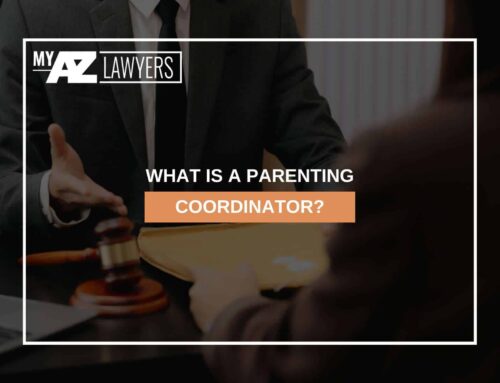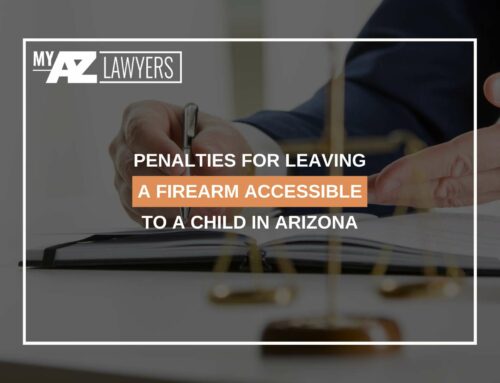Table Of Contents
How To Handle An Abusive Spouse
What You Need To Know Before Divorcing From An Abusive Spouse
Our Arizona Family Attorneys take a look at different ways to handle an abusive spouse. Both husbands and wives alike are impacted by spouses who are abusive. Often, divorce is the answer. However, there are a myriad of solutions available. Therefore, you should read on and see what our Arizona Custody and Tucson family law team has to say regarding being in a relationship with an abusive spouse.
Romantic relationships are supposed to be about trust, intimacy, and a shared bond. Unfortunately, sometimes, one partner in a romantic relationship will use abusive means to achieve their ends. If you are in an abusive relationship with your spouse, you should take the steps to protect yourself from every angle your spouse might take. Keep in mind that when you leave is often the most dangerous point in a relationship. If you decide you would like an Arizona family law attorney who is experienced in working with clients in abusive relationships to represent you in your divorce, call 480-833-8000 for your free consultation.

Types Of Abuse In a Relationship
Everyone in a romantic relationship has struggles and disagreements. When they increase in severity and frequency, you may begin to wonder if these are normal relationship issues or if you are in an abusive relationship. And you may constantly be switching between wanting to stand up for yourself to receive better treatment, and wanting to avoid agreements and do your fair share of compromising with your partner. An important thing to remember about abuse is that both women and men can experience abuse in a relationship, as well as perpetuate it. Another thing to keep in mind is that the types of abuse often overlap. So someone who is verbally abusive may eventually stoop to emotional and physical abuse, and vice versa.
Physical Abuse
When most people think of an abusive relationship, they only think of physical abuse, or domestic violence. Physical abuse can range in severity from minor scrapes and bumps that look like they could’ve been accidental to life-threatening injuries or death. Someone who is physically abusive will often escalate this behavior throughout the relationship. Leaving a physically abusive partner is often the most dangerous part of the relationship, and is not a matter that should be taken lightly.
Verbal Abuse
While physical abuse may leave bruises and scars, the injuries caused by verbal abuse don’t show on the surface. Verbal abuse can wear down someone’s self-esteem and make them feel like they can’t leave their abusive partner. Also, verbal abuse can include insulting, harassment, yelling, threatening, humiliating, excessive critiquing, and other spoken or written behaviors against the victim. Keep in mind, verbal abuse may not cause physical injuries but can still be extremely psychologically damaging to the target.
Emotional Abuse
Emotional abuse is behavior that isn’t physically violent but is still damaging to the target’s psyche. It isn’t as easy to spot as verbal or physical abuse. Someone who is being emotionally abused may not even be aware of it.
Sexual Abuse
Some people assume that if two people are in a romantic relationship, they automatically consent to all sexual activity with each other. However, if one partner in a relationship is forcing the other into unwanted sexual activity, this is sexual abuse. If you believe your spouse is subjecting you to sexual abuse, call the National Sexual Assault Hotline at 1-800-656-4673 or Rainn.org.
Getting Out Of An Abusive Relationship
As mentioned previously, getting out of an abusive relationship can often be a very dangerous time. In fact, you may have wanted to leave your partner previously, but have been scared of how they would react. If so, you will need to create an escape plan, and execute it at the best possible time. It can be even more complicated if you have minor children with your spouse. You need to protect both yourself and children from potential abuse by your spouse.
Have your detailed route planned. When you’re going to leave your spouse, you need to have more ready than your average commute to work or everyday errand. You should know exactly where you’re going to go when you leave, how you’re going to get there, make sure there is gas in the tank, etc. You should also bring a bag of necessities, but it can be difficult to pack and keep this bag without your spouse noticing. Furthermore, you should also have your identification documents safe and nearby so that your spouse doesn’t hide them in an attempt to make you stay. Make sure you aren’t in an enclosed area of your home when you break the news to your spouse, and you might even want to practice the encounter.
Create a social safety net. Your loved ones might not be aware that you are in an abusive relationship. As painful as it can be to tell them, they may be able to help you out of your situation. Whether it’s a ride, a place to stay, or just someone to talk to, you might be surprised how good it feels to let your loved ones help you, especially if your spouse purposefully isolates you as part of their abuse.
Cover your tracks. If you want to keep your plan to leave a secret from your spouse, you will need to take extra steps to protect your privacy. When you research divorce and strategies to leave an abusive spouse, remember to clear your browser history. You may even want to use a different computer, if possible. You can also consider using a second “burner” phone. And make sure all passwords and other online safety codes are changed regularly so that your spouse can’t access them.
What Are The Signs Of Emotional Abuse?
Abuse can look different from relationship to relationship, but there are some telltale signs that you or someone you know is being emotionally abused, or that someone you know is emotionally abusive. Some of the signs that you can watch out for from an abusive spouse include:
- They refuse to respect your boundaries: Whether they’re small violations of personal preferences or glaringly obvious invasions of privacy, this person always wants to toe the line with you. It could even be behaviors that are often perceived as a positive sign in relationships, like saying “I love you” too soon.
- They exhibit manipulative behaviors: Your spouse may withhold affection as a means of punishment, or ignore you to make you feel guilty. Your spouse could even engage in gaslighting, a form of manipulation centered around making the target question their own sanity and perception.
- They are dismissive of your feelings: This is the spouse who is constantly telling you that you are too emotional, sensitive, or dramatic. This is all just a way to avoid taking accountability for their words and actions. This person also might try to tear down your goals and dreams to keep you aspiring for better in life and in a partner.
- You face constant criticism from them: Your spouse might seem to love to put you down, especially in front of other people. Your spouse probably also loves to disagree with almost everything you say or think. Your spouse might also excessively tease you or use “sarcasm” as an excuse to insult you.
- They are overly controlling: This could be behaviors that seem positive from the outside, like constantly calling and texting to “catch up” (or monitor activity) throughout the day. It could be less acceptable behaviors like demanding access to your phone or secret cameras installed in the home. This behavior is meant to isolate you from people who could help you out of this situation and to gain control over you.
Contact An Arizona Family Law Attorney To Divorce Your Abusive Spouse
When you’ve decided to leave your abusive spouse, it’s important to do so both safely, but also in a way that protects the rest of your interests. If your spouse has been abusive throughout your marriage, it’s doubtful that they will be amicable during the divorce. And while some spouses may be able to complete a divorce agreement in a one-day mediation, mediation isn’t recommended for abusive relationships. Consider retaining a divorce lawyer with a background in dealing with abusive relationships. Your attorney will reduce contact between you and your abuser, as well as make sure you receive your fair share of marital assets. Additionally, your Arizona divorce attorney can also help you reach a parenting plan that protects your children’s welfare. Get expert help at budget prices with payment plans available. To get started with your free consultation, call 480-833-800 or use our online form, and let us know if you need us to be discreet.
Arizona Offices:
Mesa Location:
1731 West Baseline Rd., Suite #100
Mesa, AZ 85202
Office: (480) 448-9800
Email: [email protected]
Website: https://myazlawyers.com/
Phoenix Location:
343 West Roosevelt, Suite #100
Phoenix, AZ 85003
Office: (602) 609-7000
Glendale Location:
20325 N 51st Avenue Suite #134, Building 5
Glendale, AZ 85308
Office: (602) 509-0955
Tucson Location:
2 East Congress St., Suite #900-6A
Tucson, AZ 85701
Office: (520) 441-1450
Avondale Location:
12725 W. Indian School Rd., Ste E, #101
Avondale, AZ 85392
Office: (623) 469-6603












